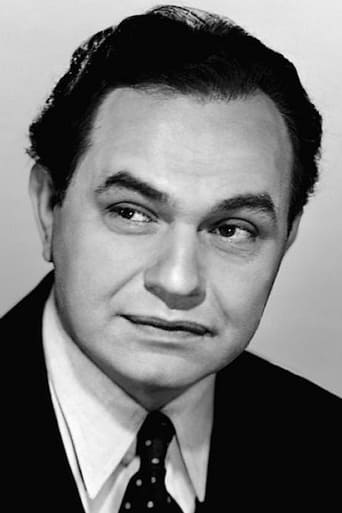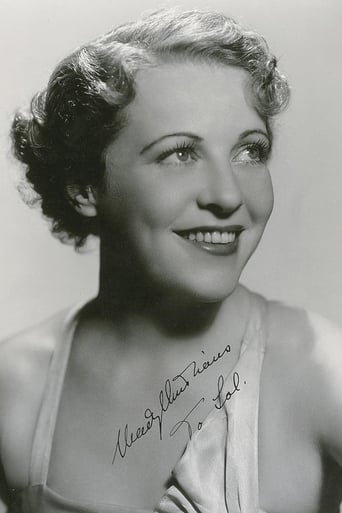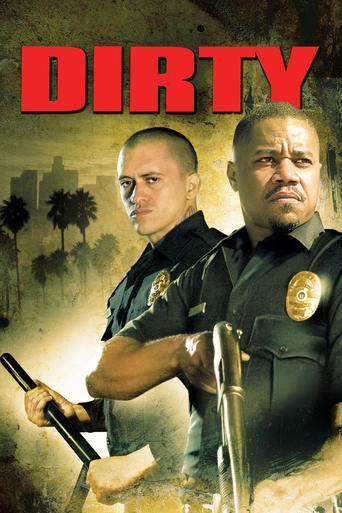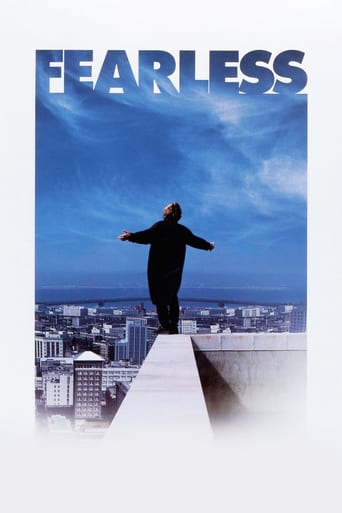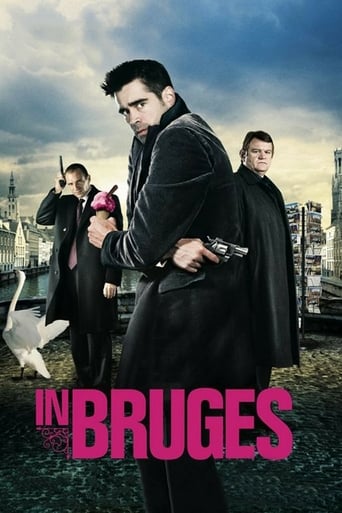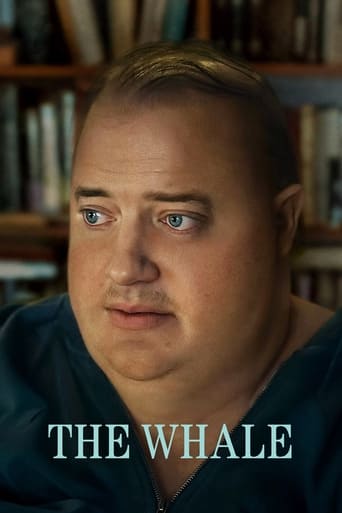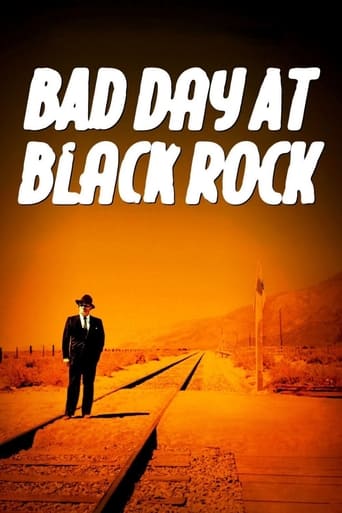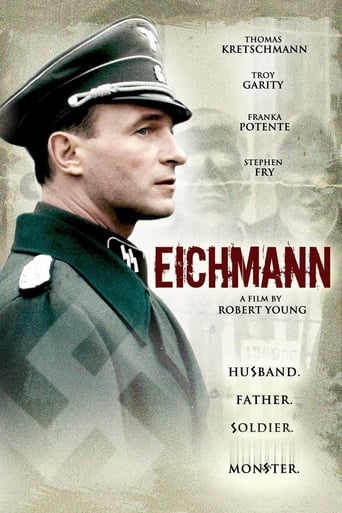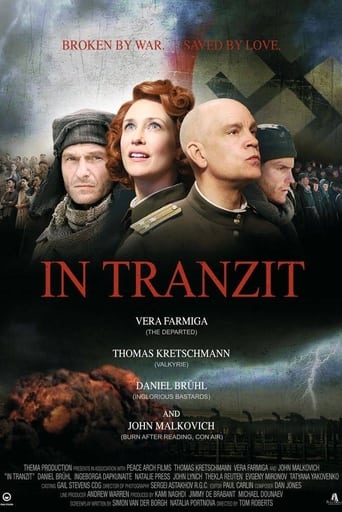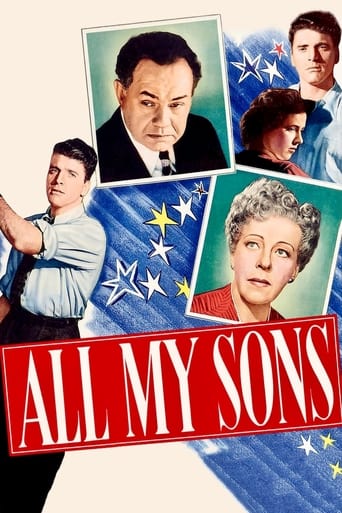

All My Sons (1948)
During WWII, industrialist Joe Keller commits a crime and frames his business partner Herbert Deever. Years later, his sin comes back to haunt him when Joe's son plans to marry Deever's daughter.
Watch Trailer
Cast


Similar titles
Reviews
All My Sons was Arthur Miller's second produced play and first commercial success winning Tony Awards for Best play, a Tony for stage director Elia Kazan and a run of 347 performances for the year of 1947. But when the film version was made the following year the House Un- American Activities Committee was taking a long hard look at All My Sons and all who were associated with it.Universal Studios which produced the film version did more than just expand a play that had a one set setting on stage, that set being the backyard of the Keller family. A whole lot of references to the capitalist system built on greed and the notion of anything for a profit were carefully eliminated. Miller's protagonist Joe Keller becomes a monstrous aberation as opposed to a symbol. That being said the adaption by Chester Erskine is still a fine drama with the polemics trimmed.Taking over from Ed Begley who did the role on stage is Edward G. Robinson as Joe Keller the owner of a factory which had shipped some bad engine parts for airplanes and caused the crash of several of them. Robinson managed to skate responsibility and the blame fell on his partner Frank Conroy who is now in prison. Incidentally one of the changes is that on stage Conroy's character is never seen only talked about. Here Burt Lancaster as Robinson's surviving son has a new scene with Conroy visiting him in prison to learn the truth about his father as doubts of his innocence have crept into his mind.The House UnAmerican Activities Committee was all over this work in their glory days of 1948. Arthur Miller was blacklisted, so was Mady Christians who played Mrs. Keller. Elia Kazan as we know turned friendly witness for the hounds of HUAC and Edward G. Robinson in the Fifties was what was termed 'gray listed'. Not forbidden to work per se, but studios were not giving A budget work any more and wouldn't until Cecil B. DeMille hired him for The Ten Commandments.In the end Robinson has to take responsibility for what he did and he does it in the most dramatic way possible. Aficionados of Arthur Miller's work will note the similarities between the Keller and the Loman families in Miller's next production Death Of A Salesman.Possibly one day we'll get another film version that is more true to what Arthur Miller had in mind. This will due until that happens.
"All My Sons" was on Broadway in 1947 and starred Ed Begley Sr. and Arthur Kennedy. It was a timely play, as stories of wartime corruption had started to surface. Considered anticapitalist, it was suspected of being pro-Communist, so the film version is somewhat modified from the play. It stars Edward G. Robinson, Burt Lancaster, Mady Christians, Howard Duff, Louisa Horton, and Arlene Francis.Edward G. Robinson plays Joe, a man who worked hard to build his factory along with his partner, Herbert Deever. During the war, Deever was put on trial and found guilty of shipping cylinders from the factory that he knew were defective, which, when put into planes, caused the deaths of many war pilots. Though Deever claimed that Joe knew about the shipment, he wasn't believed - Joe was home sick at the time the cylinders were sent. Though the cloud remained over Joe, his business stayed highly successful, and he enjoyed a good place in the community. His son, Chris, however, comes home and announces that he wants to marry Deever's daughter Ann - who had been engaged to Chris' brother Larry, lost during the war and presumed dead. This fact has never been accepted by Chris and Larry's mother (Christians), and Joe is anxious that Chris put aside his idea of marrying Ann. Then Ann's attorney brother calls her from the prison where their father is incarcerated. He believes Joe is guilty and wants to reopen the case.This is a very well acted film that suffers from the miscasting of Edward G. Robinson. Robinson was a magnificent actor but is so obviously guilty, one wonders how he escaped prosecution, especially when one sees the sincerity of Herbert Deever when Chris visits him in prison. The Broadway star, Ed Begley Sr., had a friendly face and a good deal of warmth; Robinson is scrappy, defensive, plus he looks like a thug. It was more of a Spencer Tracy role - it called for a more lovable man that you want to believe, doubts to the contrary. Mady Christians, who was blacklisted, is very sympathetic as Joe's wife.Burt Lancaster insisted on this role; early on, he saw a career as a hunk beginning to take form and fought it. This led to interesting parts for him later on, and he made a great transition to character actor later in life. One can certainly understand the temptation to cast him as a hunk, with his broad shoulders and great build. Lancaster was the whole matinée idol package, right down to his full lips. Apparently the actor knew how handsome he was and was very competitive with other stars of that era, such as Tony Curtis, and like Curtis, he wanted more than romantic leads.Despite its flaws, All My Sons is a strong drama about a son breaking away from his father, the strength of denial, the importance of penance for one's acts and of moving on. A Chinese woman who saw "The Crucible" was certain that Arthur Miller had been in prison in China, so universal was the language of that play. That was Miller's gift, the ability to tell a deeply human story that, politics and social change aside, can still resonate today.
"All My Sons" is one of those disappointing films that goes far enough in a certain direction to become somewhat interesting but doesn't really follow these ideas to any kind of meaningful or even dramatically satisfying conclusion. To how much of an extent that was the fault of the original work by Miller and how much was due to the changes by the screenwriters it's impossible for me personally to judge because I'm not familiar with the material. But regardless of the reason, in my opinion it doesn't add up to a particularly good film.Chris Keller (Burt Lancaster) is the somewhat disillusioned son of an industrialist, Joe Keller (Edward G. Robinson) who happens to be in love with the daughter of his father's former business partner (Howard Duff), Ann Deever (Louisa Horton). What could have been a rosy small town setup however has been sent off the tracks by a criminal investigation into the war-time practices of the company, which was accused of passing off defective parts which ended up killing American pilots Ann's father has been sent to prison for a crime that it becomes increasingly obvious was probably just as much Edward G's character's fault.The great weakness of this film is that it's completely obvious that his character is the guilty one. Otherwise there would be no story at all. And a moral dilemma should really have more weight than this one. Should Keller have rejected the defective parts, even if it meant shutting down his plant? Obviously he should have rejected them, so there's really no dilemma. The film tries to convince us that his plant would have been forced out of business if he had rejected them, and yet at the same time shows us that his business was booming during the war. This makes the economic element of the dilemma unconvincing. And even if we did believe that he had to choose between rejecting the parts and closing his plant, his speech about how hard he's struggled to create this legacy for his children hardly inspires me to empathy with his "plight".As if to quash any last possibility of compelling drama, the film's eventual conclusion focuses on a letter from Chris' brother, who died in the war. His letter, which the film implies should be like an earthquake of drama shaking this family, is instead predictable and its tragic consequences are also predictable.
Arthur Miller is one of our best authors. His play however reeks of a bias, that makes him seem ignorant of his own times. Without Industry, and the profit system, the US would not have won WWII. Rubber was one of those items needed to fight a modern war. And it was the "war profiters" who provided our nation with synthetic rubber. If your too young to remember, ask your grandfather or Dad about the rubber shortage. If a writer wants to focus on immorality, why don't they start at the top, and blame those politicians and propagandists who get us into wars. Watch nearly every movie made from 1939 until 1945, and you will see what Playboy magazine called "Hollywood Go to War."People of German, Italian and Japanesse decent were racially and ethnically played in the worst possible way, and any artist worth his salt would agree that even a movie as great as Casablanca had its share of propaganda.Miller and Chester Erskine, who adapted Miller's play seemed an illogical indictment of anyone who made a profit during the war.Aircraft pistons are one part of an Aircraft. They are less likely to fail than compression rings, rods, bearings, electrical and hydraulic parts. Losing one piston, does not usually cause crashes.Writers may be clever about how they write, but they can sound awfully stupid writing dialog that has Joe Keller stating that he "beat an old stove up for scrap." Scrap is sold by the pound, not by condition.More importantly, both writers seem to be totally ignorant of the government and manufacturer's inspection systems. Manufactures would not accept "junk" material from a subcontractor. As aircraft are put together, each manufacturer assumes liability for the pieces they build. More than the Federal inspectors, they would not risk their contracts by routinely and criminally accepting faulty pistons. Miller and Erskine conveniently overlook that logic and fact, and concentrate on one character who probably would have been caught before the piston ever found its way into an aircraft.Before the aircraft was accepted by the military, it would be flown to its maximum performance standards. The military would also fly the aircraft in a test flight before sending it into combat. The failure of one piston, in an engine would not usually bring an aircraft down. This is particularly true of multi-engine aircraft. And perfectly good pistons have been known to break down occasionally. Producing perfectly good pistons that break is not a crime or immoral. Proving that a faulty piston caused 29 accidents, and was a crime, is legal fantasy.There may have been a million pistons produced in WWII. The sheer number makes it likely that some perfectly good pistons failed.Miller's and Erskine's play and film script becomes a tall tale to weave its "moral" failings of one man, or the industries that produced "The Arsenal" of Democracy.From the lowest person who pushed a broom, to the very capable men who made millions, Miller's seemed to go out of its way to indict the industry that provided the arms for the the millions in uniform. I would be foolish to defend the rotten apples, cowards, stupid mistakes, and expediencies which cost lives. It just makes me wonder why Miller picked on one piston manufacturer to make his clumsy points. I recall a line in the film dialog, where Joe Keller stated that he had been arrested and spent some time in jail, and the jury declared him innocent. Did Miller or Erskine ever attend a real criminal trial? Does he know what it takes to convict anyone in this country? Convincing a jury that a batch of bad pistons among millions caused 29 crashes goes beyond any real concept of the trail system.Why did Miller pick a fight with the men who made profits during the war? His play shows his contempt for such men, the film version softened his personal views.The film ignores some basic facts. A public trial opens up an opportunity for all sorts facts and evidence to surface. More importantly, since Joe Keller was acquitted, he could not be charged again. As the film opens, his reputation is already an open question with some in his circle of friends, and should have been fixed during the time the film opens. Neither Miller nor Erskine inject any new information into Keller's guilt or innocence. Whether Keller was sick or not on the day the "faulty" pistons were shipped, in any ordinary trial would have been investigated and regurgitated by Keller's defense team. Keller's statement at the dinner table, that" he had never been sick a day in his life" has as much resonance as the comments all men make at times, such as "I would have killed him".Miller doesn't know anything about American combat pilots. They were not inclined to go on suicide missions due to defects in family or friends.Miller should have written what it was like to have survived as a combat crew-member during the war. Or the moral anguish that officers had over sending men to their death. especially when mistakes were made. Did they have a moral struggle to admit they cost innocent lives?Miller's play is a fiction that goes beyond "literary license" and to this film lover, seems to be an effort at politics, rather than a morality play.I still do not understand the purpose for creating a character like Kate Keller. Anyone who continued to think her son was still alive three years after the war does not seem to be a stable person and more likely to commit suicide than the character of Joe Keller.


